ECMAScript tools
composable modules and transpiler infrastructure
Yusuke Suzuki (a.k.a Constellation)
composable modules and transpiler infrastructure
Yusuke Suzuki (a.k.a Constellation)

ECMAScript is now widely used
And ECMAScript tools are also developed widely

Transpiler must also do minify task...
Because they use raw script text as IR

We suggest using Mozilla JS AST as IR

var i = 42;
{
"type": "Program",
"body": [
{
"type": "VariableDeclaration",
"declarations": [
{
"type": "VariableDeclarator",
"id": {
"type": "Identifier",
"name": "i"
},
"init": {
"type": "Literal",
"value": 42
}
}
],
"kind": "var"
}
]
}
By using AST as IR, we can pass rich information
And we can develop modules using AST as IR and compose them
We'll introduce mainly 3 modules
ECMAScript parsing infrastructure for multipurpose analysis : link
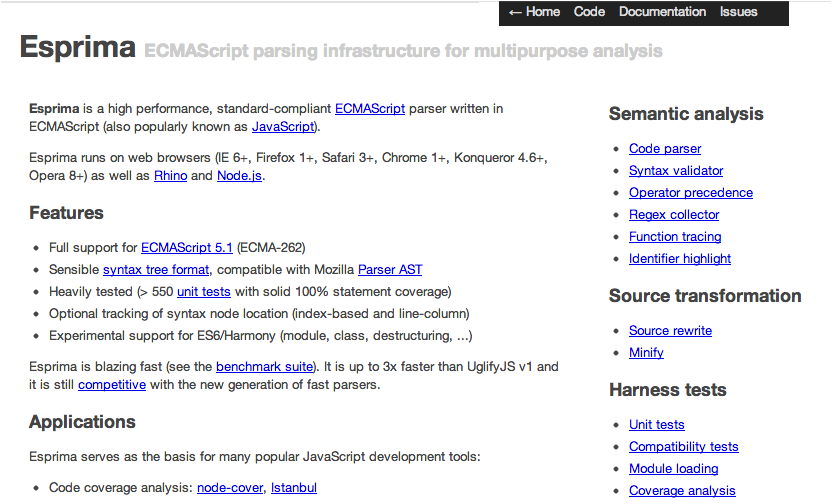
Esprima provides complete ECMAScript parser (including strict-mode syntax check)
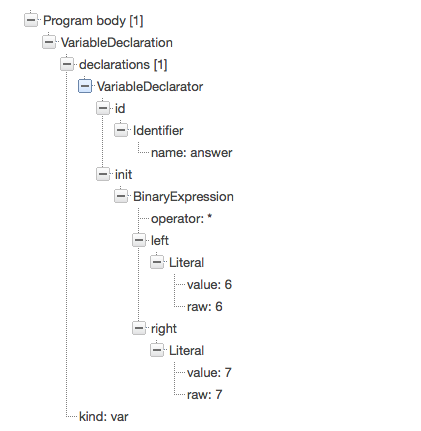
| Input | JavaScript code |
| Output | Mozilla JavaScript AST |
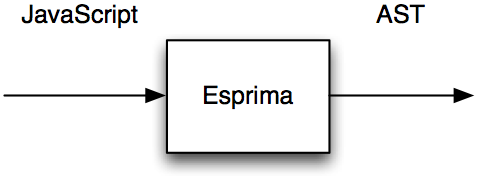
ECMAScript code generator : link
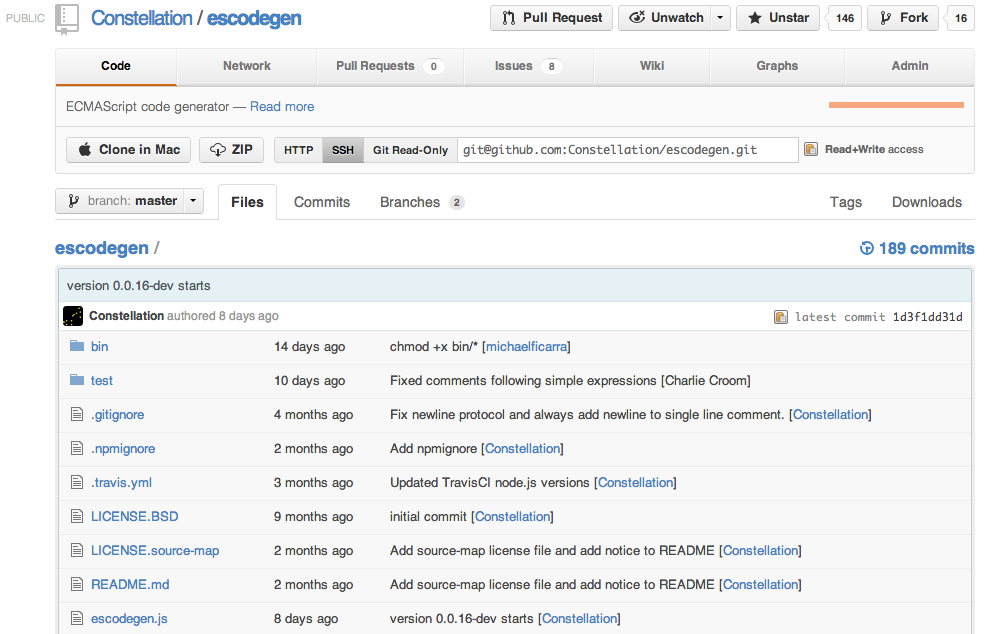
Escodegen provides ECMAScript code generator
principle:
// structurally equal parse(generate(parse(code))) === parse(code)
Escodegen do not mangle names and do other things
This keeps module simple and composable
| Input | Mozilla JavaScript AST |
| Output | JavaScript |
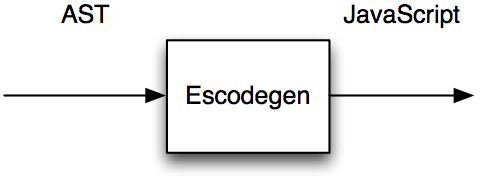
ECMAScript mangler / minifier / optimizer : link
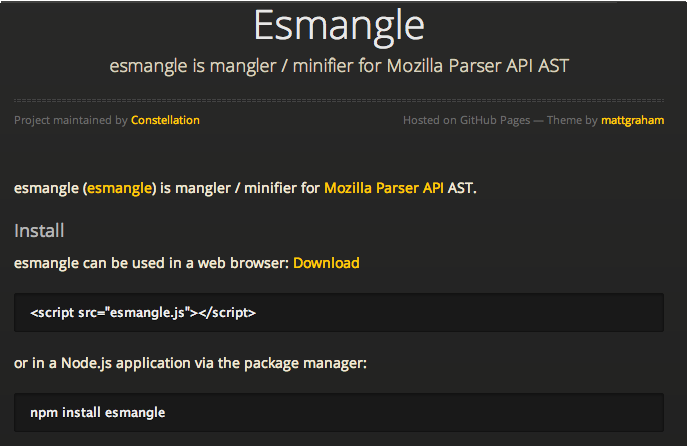
Esmangle doesn't parse / generate code. It's only responsible to optimizing AST
function upperBound(array, func) {
var diff, len, i, current;
len = array.length;
i = 0;
while (len) {
diff = len >>> 1;
current = i + diff;
if (func(array[current])) {
len = diff;
} else {
i = current + 1;
len -= diff + 1;
}
}
return i;
}
function upperBound(e,f){var b,a,c,d;a=e.length,c=0;while(a)b=a>>>1,d=c+b,f(e[d])?a=b:(c=d+1,a-=b+1);return c}
Esmangle consists of many small pass functions. We apply them to AST iteratively to resolve fixed point of AST like compiler.
| Input | Mozilla JavaScript AST |
| Output | Mozilla JavaScript AST |
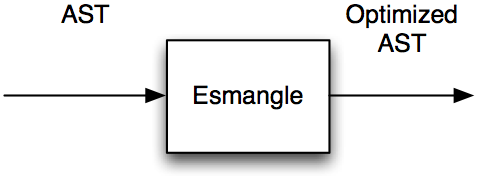
Because it uses AST as IR, modules can preserve original line/column information
For example...
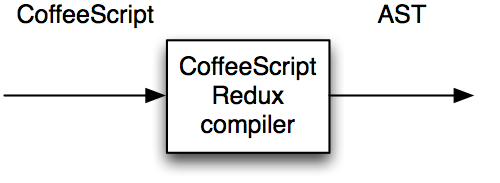
And we can develop other small (or large) modules using AST as IR
Because they use standarized IR - Mozilla JS AST
We can use them and combine them into large tools
These modules become transpiler infrastructure!
It can produce SourceMap to original code

new CoffeeScript compiler - well-modularized compiler
CoffeeScriptRedux compiler uses Escodegen as its backend
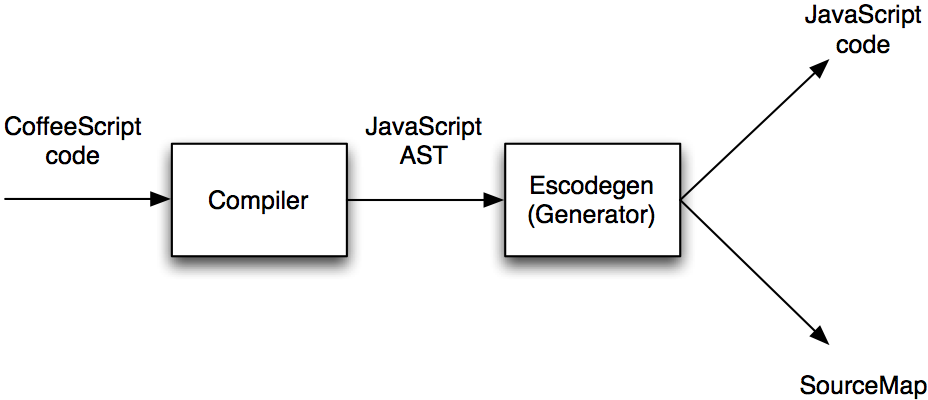
Sweet.js brings hygienic macros from languages like Scheme and Rust to JavaScript
sweet.js also uses Escodegen as its backend

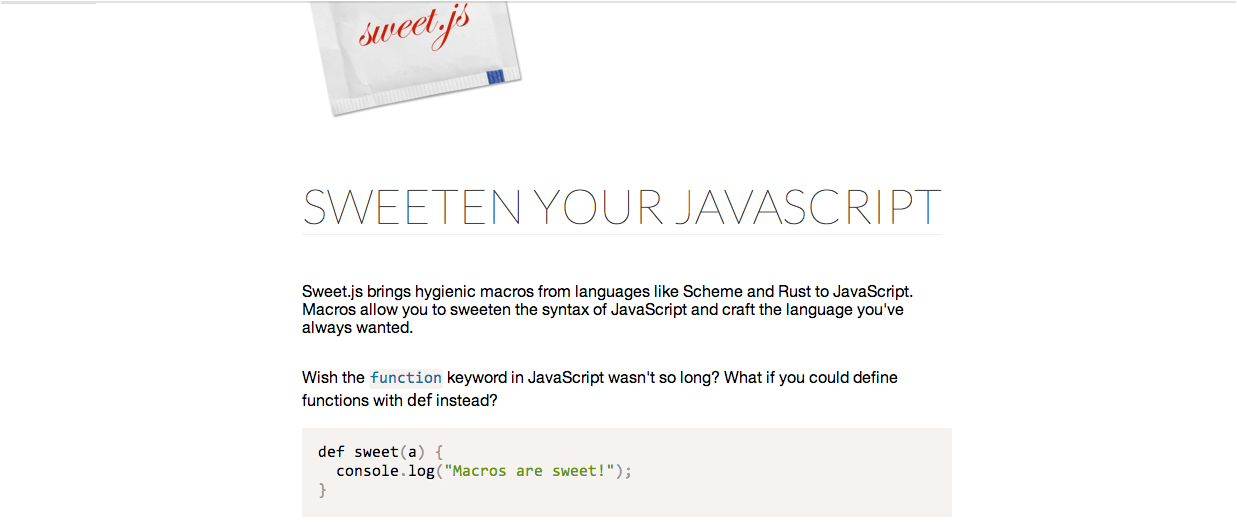
istanbul is coverage tool using Esprima & Escodegen

istanbul screen shot

If we develop modules using AST as IR, we can apply them to all transpiling languages that produce AST
For example...